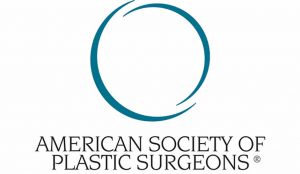Board Certification – What does it mean?
Posted May 28, 2017 in Board Certification
It seems to me that over the years my patients are becoming more and more educated before they come in to have a consultation. They are reading on the internet, trying to research, checking out websites, talking to their friends and family, and working hard to try and make informed decisions. One of the topics that often arises is that of board certification. Is your plastic surgeon board certified? The answer to this question may not be as simple as just yes or no. Let me explain.
Board Certified vs. Board Eligible
If you look at many young surgeons, you might see something that designates them to be board eligible. All board certified plastic surgeons were board eligible at one time. To become a board certified, plastic surgeons need to complete their residency training and then start their practice. In the first year of practice, they operate and document their cases. During this time, they are considered to be board eligible. In November or each year, the board certification written exam is offered. It is only offered once a year. If a young surgeon passes the written exam, they remain eligible to take the next exam, the oral exam, which is offered the following November. If theypass the oral exam, given by the American Board of Plastic Surgery, they are then considered board certified. So even if a young surgeon is the cream of the crop, it will take him/her almost two full years after finishing residency to obtain board certification. During those 2 years, they very well may be safe, effective, and thoughtful surgeons, but considered to only be board eligible. So, board eligible is not necessarily a bad designation. Unless, the surgeon is many years beyond his/her residency graduation date.
What Board is Certifying?
This is a very important piece of information to understand. Almost all surgeons realize that prospective patients are looking for board certification information. The surgeons that are certified by the American Board of Plastic Surgery are relatively easy to identify. They typically will post icons from either the ABPS or the ASPS (American Society of Plastic Surgery) on their websites. Below are the symbols you should look for.

The American Board of Plastic Surgery is the only board that is recognized by the American Board of Medical Specialties and is what surgeons are alluding to when they claim to be board certified. Unfortunately, there are quite a few other “boards” from which surgeons can claim “certification”, but none of them are the same as the ABPS. An ear nose and throat physician (ENT) or otolaryngologist may have finished a fellowship in “facial plastic surgery” and may claim to be board certified or even double board certified. But their board certification is in the specialty of Otolaryngology, not Plastic Surgery. There is a huge difference. Especially when it comes to performing surgical procedures that are not limited to the head and neck. An OBGYN physician performing liposuction may be board certified by the American Academy of Cosmetic Surgery, but they should not make any suggestions that they are Plastic Surgeons. There are many non-plastic surgeon physicians that have found that performing elective cosmetic surgery can be a lucrative practice. And many of them are intentionally misleading about their credentials and certification. If you decide to have a procedure by someone not certified by the American Board of Plastic Surgery, you are taking your chances.
How do I avoid choosing a potentially risky physician to perform my surgery?
There are several “boards” and “certifications” that a ABPS certified surgeon will almost never claim and advertise for themselves. These boards are almost exclusively used by non-plastic surgeons to try and legitimize their practices.
The American Board of Cosmetic Surgery
The American Academy of Cosmetic Surgery
The American Board of Aesthetic Medicine
The American Board of Facial Cosmetic Surgery
These are some of the commonly used entities that add to the confusion on this topic. This is not to say that there may be some validity to these certifying organizations. But they should never be used in a way to intentionally mislead prospective patients into believing that they are the same as the American Board of Plastic Surgery. If you see a provider claiming to be certified by any of the above organizations, I would recommend an in depth investigation into their qualifications to perform cosmetic plastic surgery procedures.

